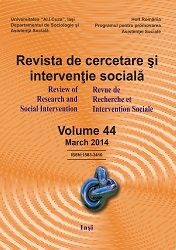Application of Data Envelopment Analysis to Evaluating Elderly Social Welfare Performance
Application of Data Envelopment Analysis to Evaluating Elderly Social Welfare Performance
Author(s): Luke Hsiao, Suh Chen HSIAOSubject(s): Social Sciences
Published by: Expert Projects Publishing
Keywords: social welfare; elderly society; organizational performance; efficiency evaluation; capacity;
Summary/Abstract: The constant development of economic societies allows the elderly enjoying certain social security and increasing the demands for the social welfare of health, medical treatment, public health, and society management; and, the government therefore has declared for reinforcing the social welfare as the key administration. With the increasing expenses but decreasing incomes, the social welfare budget is still increasing. Under the restricted resources, allocation becomes a major challenge for the governmental administration. Modified Delphi Method is utilized in this study for screening the input/output factors. Total 30 copies of questionnaires are distributed, and 22 are effectively responded, with the response rate 73%. Data Envelopment Analysis (DEA) is applied to evaluating the efficiency. The variable data used in this study are open statistical data from Ministry of Interior. The research results show 3 DMUs with strong-form efficiency in the practice of elderly social welfare (efficiency=1), about 15% of all DMUs, revealing the favorable elderly social welfare efficiency; another 3 DMUs present marginal inefficient in the practice of elderly social welfare (0.9<efficiency<1), about 15% of all DMUs, revealing the elderly social welfare efficiency being more easily enhanced than other counties and cities; and, 14 DMUs appear distinctly inefficient in the local sustainability efficiency (efficiency<0.9), about 70% of all DMUs.
Journal: Revista de Cercetare şi Intervenţie Socială
- Issue Year: 2015
- Issue No: 48
- Page Range: 83-94
- Page Count: 12

